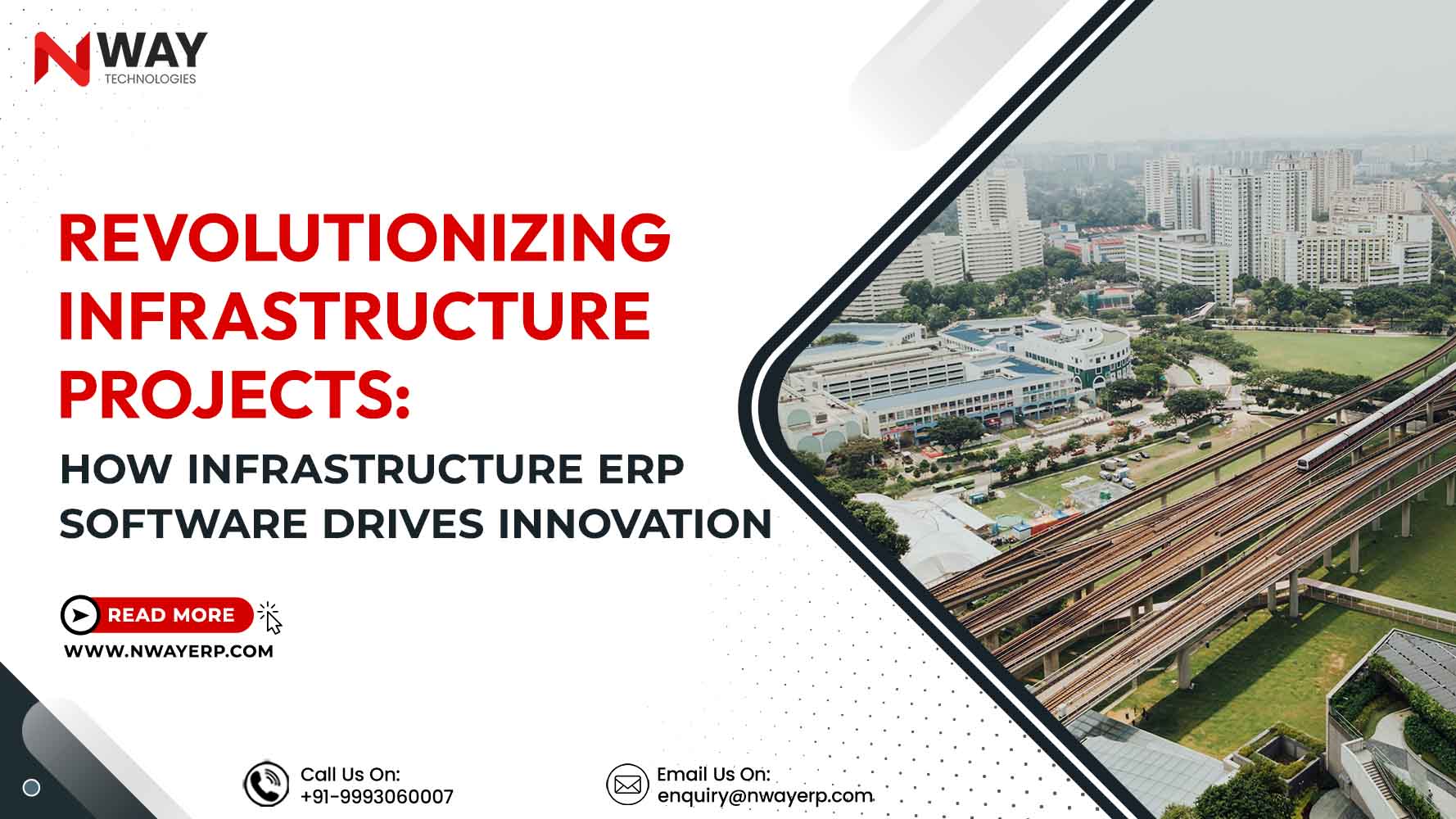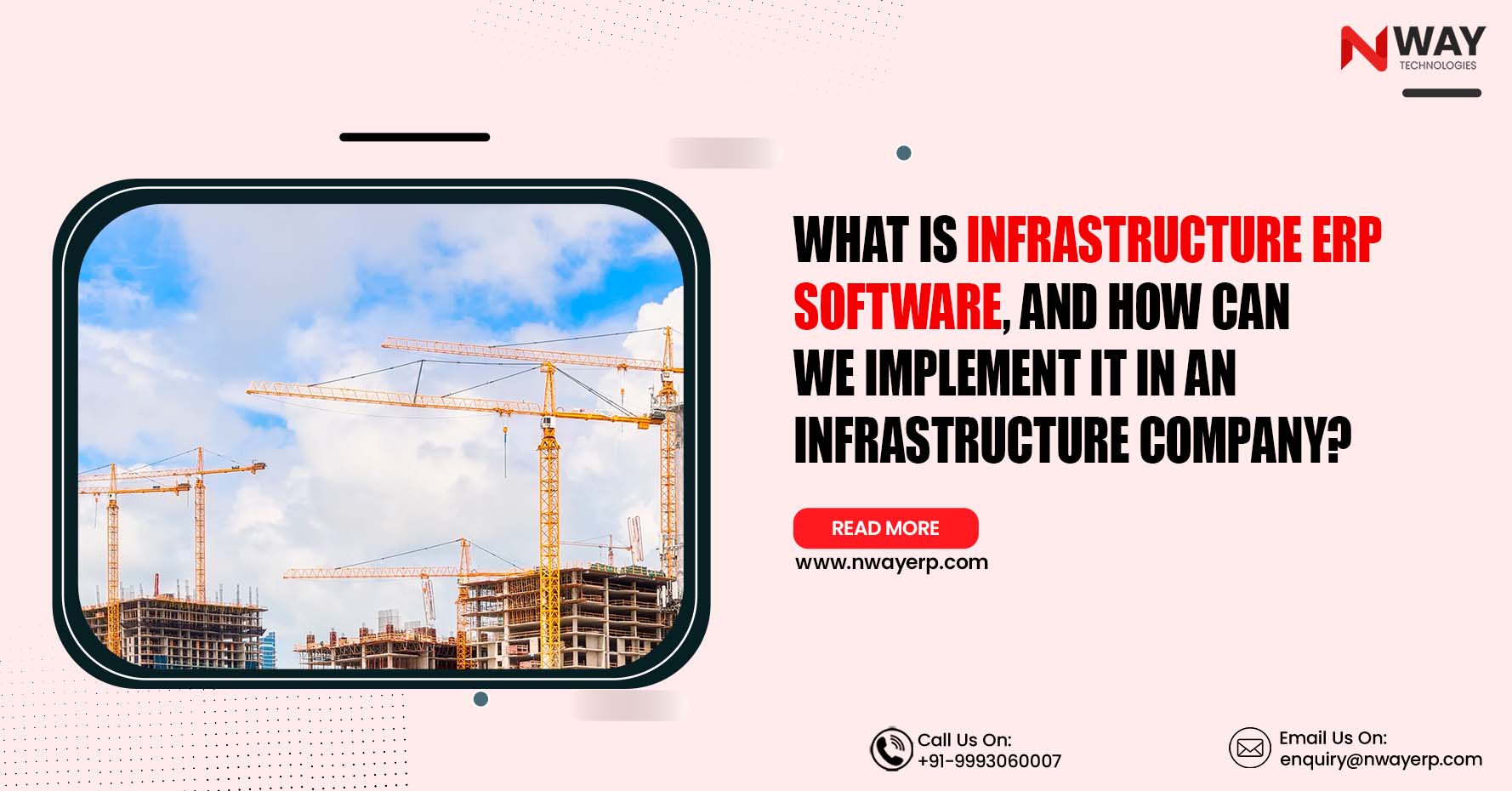When would you need Infrastructure ERP Software for modernization?
Organizations must remain on top of the continuously changing landscape of infrastructure projects to succeed. The Enterprise Resource Planning (ERP) software industry is one area where modernization is crucial. Although ERP systems have long been a mainstay in many industries, they frequently need help to meet the unique requirements of infrastructure projects. When would you, therefore, require ERP modernization?
First, it’s time for a change if your ERP system is outdated and lacks the capabilities and functionalities required to support your infrastructure initiatives. Using legacy systems can cause delays and cost overruns since they are slow, ineffective, and prone to mistakes. Modern infrastructure ERP software solves these problems that providing real-time data, faster workflows, and powerful project management tools.
Second, your organization’s current ERP system might not be able to handle the increasing burden if it is growing operations or taking on challenging infrastructural projects. Scalable and flexible ERP software is essential as projects become more complex. You can efficiently allocate resources, oversee numerous projects at once, and monitor progress in real-time by using infrastructure ERP software.
Last, it’s time to think about modernization if your ERP system cannot connect to other crucial systems. Infrastructure initiatives in today’s linked world demand smooth data interchange and connectivity between multiple systems. ERP software that integrates with other systems, including project management tools, financial systems, and software for building information modelling (BIM), enables effective data exchange and collaboration, lowering errors and enhancing decision-making.
How Infrastructure ERP Delivers Modernization?
Now that we’ve established the scenarios in which ERP modernization may be necessary let’s look at how infrastructure ERP software implements modernization.
Automation is a primary method of ERP software programs transforming infrastructure projects because manual processes and paperwork can be inefficient and time-eating. Using ERP software, project teams can save time by automating routine processes like resource allocation, financial management, and challenge scheduling. Furthermore, automation decreases the danger of pricey mistakes by ensuring accurate and consistent records.
Another element of enhancing infrastructure ERP software is real-time records analytics. Access to dependable and up-to-date data is critical for making decisions in speedy-paced international infrastructure tasks. ERP structures provide assignment managers and stakeholders with thorough dashboards and reviews that provide in-intensity data on their projects’ performance, aid use, and financial indicators. With this information, they’ll make knowledgeable decisions quickly, decrease risks, and decorate project consequences.
Infrastructure ERP software also makes collaboration and communication between undertaking groups and stakeholders less difficult. A centralized machine that connects numerous departments and operations can facilitate records drift whilst lowering statistics silos and fostering collaboration. Project managers may additionally collaborate with engineers, architects, contractors, and providers to ensure everyone follows the same dreams and strategy. This more desirable teamwork shortens task instances and encourages creativity.
How ERP software program drives innovation in Infrastructure initiatives
Infrastructure tasks thrive on innovation and ERP software program is important in advancing innovation. Following are some examples of the way ERP software program encourages innovation in infrastructure initiatives:
Streamlined Project Management
ERP software offers robust project management capabilities, enabling agencies to optimize overall performance and streamline operations. Project groups can successfully plan and perform their projects with the help of equipment like mission planning, useful resource allocation, and undertaking control. ERP software program enables mission managers to find bottlenecks, make records-driven picks, and execute continuous improvement tasks by automating repetitive operations and giving actual-time visibility into venture development.
Enhanced Risk Management
Since infrastructure investments are inherently risky, hit threat management is important. Throughout a challenge, an ERP software program assists businesses in figuring out, assessing, and mitigating dangers. Project groups can proactively control dangerous ways to ERP structures’ statistics consolidation and sophisticated risk evaluation equipment. Project managers can take corrective motion before viable troubles worsen thanks to actual-time records and analytics that enable early detection of potential problems.
Improved Resource Allocation
Efficient resource allocation is a critical factor in infrastructure project success. ERP software provides organizations with the tools to optimize resource allocation by tracking resource availability, skills, and utilization. Project managers can effectively allocate resources by understanding resource capacities and demands and ensuring the right people are assigned to the right tasks. It leads to increased productivity, reduced costs, and improved project outcomes.
Integrating ERP software with other systems in infrastructure projects
To leverage the strength of ERP software in infrastructure projects, combining it with different vital structures is critical. The integration enables seamless information alternate and collaboration between exceptional departments and functions, enhancing performance and accuracy. ERP software can incorporate the following key structures into infrastructure initiatives:
Building Information Modeling (BIM) Software
BIM software is used for 3D modelling, simulation, and visualization in infrastructure projects. Integrating BIM software with an ERP system allows for the seamless transfer of project data, including designs, parts, and cost estimates. This integration gives project teams a holistic view of the project, aligning design and construction plans with project budgets and schedules.
Project Management Tools
Project management gear, Gantt charts, task trackers, and difficulty management systems are crucial for powerful assignment execution. Integrating those tools with an ERP software program guarantees the synchronization of task statistics, reducing the need for manual facts entry and removing discrepancies. Project managers can tune assignment progress, screen task dependencies, and manipulate assignment dangers from a single, incorporated platform.
Financial Systems
Infrastructure companies must efficiently manage their finances and can incorporate ERP software with financial systems such as accounting and budgeting software to expedite economic operations. This integration makes real-time economic monitoring, accurate price allocation, and automated economic file training possible. Companies can also make smart economic decisions and keep operations productive by avoiding manual data.
Start Your Journey Today! With NWAY Infrastructure ERP Software
Do you have a plan for transforming your infrastructure-related initiatives? Choose NWAY ERP, which helps to meet the specific requirements of infrastructure projects based on its current capabilities and features. NWAY ERP Software allows corporations to effectively foster innovation and entire tasks, from assignment-making plans and aid allocation to real-time analytics and verbal exchange tools.
Conclusion: The future of infrastructure projects with ERP software
In conclusion, ERP software is revolutionizing infrastructure initiatives by fostering modernization and innovation. ERP software program gives groups the tools they want to achieve cutting-edge, dynamic production quarters, from streamlining venture administration to strengthening hazard management and enhancing useful resource allocation.




